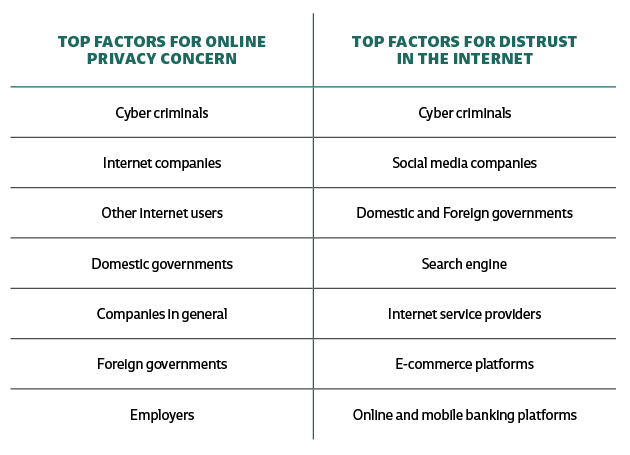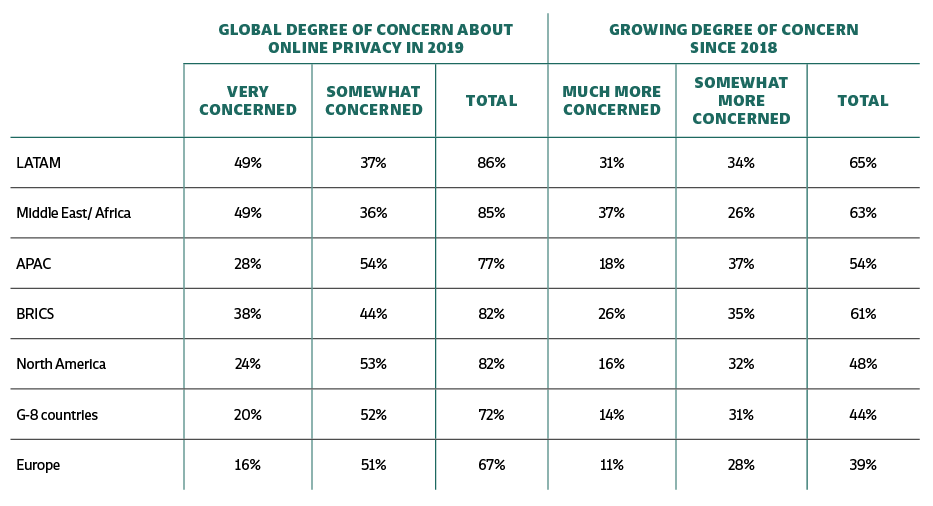Consumers have changed their lifestyle, thus their consumption habits, and consequently, their online behavior. Having wireless access to the internet and through multiple devices (computer, laptop, tablet, mobile phone), they are more e-included and engaged with brands than ever.
But they are also more demanding than ever, and their desire to have “here-and-now” may jeopardize their online privacy and lead to data breach. Merchants have been investing on security and data protection to ensure safe, secure transactions, and provide for the best shopping experience. And what about consumers, are they as privacy-conscious too?
Are consumers privacy-conscious?
Nowadays, personal information becomes all the more valuable as the more useful it is. For e-businesses, the more details they have about their customers, the more easily they can meet their demands and provide for a better online shopping experience.
For consumers, by submitting their data online, such as browsing preferences, navigation history, and geolocation data, they get faster and more accurate results when searching for an item, either in search engines, websites or online stores.
That said, a pertinent question arises: are consumers aware of what is at stake when submitting their data online?
The consumer’s concerns
There is a global widespread feeling that online privacy is constantly at risk, and across all regions people are showing at least some degree of concern:
Consumers concerns about online privacy and distrust in the internet are increasing, being cyber criminals the leading reason for it:

Despite their scepticism and concern, it seems that consumers are somewhat comfortable sharing their data to make their life more convenient (67%), or if they trade it for discounts or rewards, and/or if companies and retailers are clear about what they plan to do with it.
But what’s impressive is the fact that consumers believe they are the least responsible (52%) for ensuring their own personal data protection and are expecting it from companies (34%) and governments (42%).
Whether they feel more or less responsible for it, after all, what are people doing to ensure their own personal information is protected?
Adopting online privacy and data protection behavior
Privacy and data security are concepts that go hand in hand, and its maintenance depends on three factors:
- Consumers must adopt online conscious behavior
- Merchants must adopt risk analysis tools and data protection procedures
- Constant update of standards and legislation, and its implementation and enforcement
Altogether governments, fintech experts such as BoaCompra/PagSeguro, and merchants have been working on developing and implementing procedures that ensure secure, safe communications and transactions, as well as the compliance with the Right to Privacy. PCI compliance, tokenization and digital finance solutions such as PIX, are examples, among other.
When it comes to take action, most consumers clear or disable cookies (44%), limit sharing information on social media (44%), stop using public Wi-Fi (31%), change default privacy setting on devices (29%), read Terms & Conditions before installing or downloading apps (28%), or use other details than full name in social media profiles (23%).
Fewer consumers are enabling multi-factor authentication (18%), deleting social media accounts (17%), and using anonymous payment methods (15%), using VPN to encrypt information sent to and from their devices (14%), and using encrypted e-mail services (13%).
As for individuals/consumers, it’s all about having an online-privacy consciousness, and matching their online behavior with the increasing risk of data breach, inevitable to all e-surfers and e-shoppers.
BoaCompra’s payment solution is fully compliant with the data privacy and security regulations and best practices in each country we operate at. Get in touch with us to learn more:







